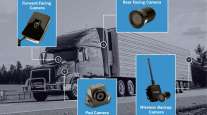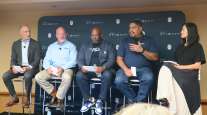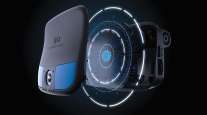Regulators Want to Know if Cameras Should Replace Car Mirrors

[Stay on top of transportation news: Get TTNews in your inbox.]
Drivers in the U.S. may one day no longer have to crane their necks to check their blind spots if regulators agree to let high-tech cameras and screens replace the humble side-view mirror.
The National Highway Traffic Safety Administration said in a notice Oct. 9 that it is seeking public and industry input on whether to allow so-called camera monitoring systems to replace rear- and side-view mirrors mandated by a longstanding U.S. auto safety standard.
Tesla Inc. and the Alliance of Automobile Manufacturers in 2014 petitioned the agency to allow cameras to be used in lieu of traditional mirrors, citing improved fuel economy through reduced aerodynamic drag as the primary benefit. Cameras feeding one or more displays inside the car could also improve rear and side visibility, the Auto Alliance has said.
But NHTSA, which has been studying the possibility for more than a decade, says camera monitoring systems may also introduce new safety risks. A five-year agency study of the technology on heavy-duty vehicles found display screens were too bright, making it harder for drivers to see objects on the road ahead.
NHTSA’s 2017 tests of a prototype camera monitoring system found it was “generally usable” in most situations, and produced better-quality images than mirrors at dusk and dawn. It also found potential flaws, including displays that were too bright at night, distorted images and camera lenses that would become obscured by raindrops.
NHTSA said in a notice in the online Federal Register it is seeking outside research and data about the potential safety impacts of replacing mirrors with cameras to inform a possible proposal to alter the mirror requirement in the future.
The comment period will be active for 60 days after the notice is formally published in the Federal Register on Oct. 10. The agency didn’t offer a timeline for a final decision, but changes to auto safety standards typically take years.
Want more news? Listen to today's daily briefing:




